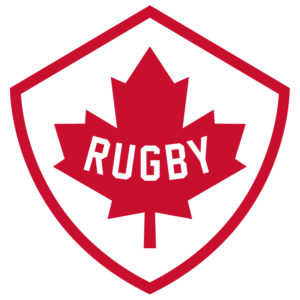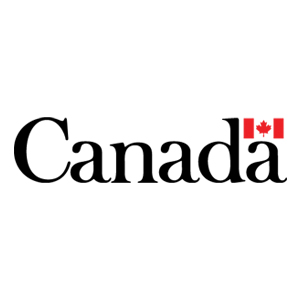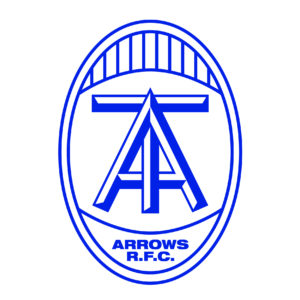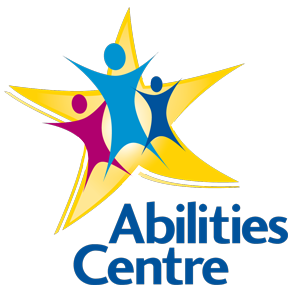
Women In Rugby: Larissa McFadden
FOR IMMEDIATE RELEASE
March 3rd, 2022
(WHITBY, ON) - International Women’s Day will be celebrated on March 8th, 2022. In the lead up to the day, Rugby Ontario will be publishing features on various women in the rugby community from all across the province who are helping to grow the game. Today's feature is on Larissa McFadden! Larissa is a player who learned the game at Kent Havoc RFC and has played for Wilfred Laurier University. Read below to learn more about Larissa!
How did you first get involved with rugby?
I first got involved in rugby at high school. My grade nine English teacher, Scott Morkin, introduced me to the sport shortly into the school year. Similar to many others introduced to the sport of rugby, I was hesitant in jumping in. However, after learning more about the sport, I was hooked and went to tryouts in the spring. After the first tryout, I got hooked. Now, I am fully rugby obsessed and love everything about rugby union.
What is your favourite rugby memory?
My favourite rugby memory is going to CRC with Team Ontario. Getting picked to be on that team was something that I never really thought could happen but the Coaches trusted that I could bring something to the team. What makes this memory the best was all the off-field time we had together. It was great to play with so many others across the province, but it was that away from training time where I strongly believe you get to truly know people. One day during the tournament, we had an off day and had the chance to go visit Banff and Lake Louise. That day will be one of my favourite memories that I got from rugby.
What do you love most about the sport?
The camaraderie is something that is very unique to rugby. With rugby, I know that in most countries around the world, I can find any club to play with and be accepted with open arms. That camaraderie of letting anyone into the community, welcoming anyone that is interested in playing this great game. There is also the post game. The ability to socialize with the other team, after 90 minutes of beating each other up, you get some food and to talk about rugby with new friends. How many other sports do you know of where anything that happened while playing is left on the field? You can look at major of rivalries across rugby union, especially between Harlequins and Sacarens, you can have two of the best players, like Sarah Beckett and Poppy Cleall, whom will battle on the field with each other, but off the field, they respect and are good friends. This is an aspect that is always the frontrunner of any team, that is how you present yourself off the field is more important than what you put on the scoreboard.
Do you have a female athlete/coach/match official who inspired you to get involved in sport?
Throughout my rugby journey, there have been many women that have inspired my rugby. In high school, it was the athletes like Delenay Taylor, Bailey Walker, and Natasha Smids that pushed me to start developing my rugby IQ. My size wasn’t always going to be something I could rely on, and I needed to truly understand what was happening in front of me to set the team up for success. At the club level, I had the privilege to play with Kara Colhun, Cailyn McKay, Jade Farhat and a coach like Shannon Walter at London St. George’s and Havoc, athletes like Kristin Buis, helped to expand that knowledge. Playing at the club level truly helped me to play at a higher level and to get to more of the technical work that, due to a shorter season, most high school coaches can’t dive into as much. The access to new coaches with different philosophies and on-field structures that I can bring to any team I go to. With team Ontario, that entire team inspired myself to see what rugby can do for you. How rugby can take you across the country to places that. To continue to build on my knowledge from high school and club, to apply to university. Being guided by coaches like Kelly Martin, Meagan Hart, athletes like Alisha Geier, Shannon Bellamy, and Liz Isbister. University rugby is truly something different from even the senior club and they have all been there to help not just myself, but for everyone. They have helped to shed light on the fact that talent isn’t everything. At the University level, you have to have a combination of talent, skill, rugby IQ and dedication to really be an all star on the pitch. That you have to use everything that you know, and rely on those around you to be the most successful for the team. It is important to absorb what works for you, then to bring that to other teams.
What challenges have you faced as a female in sports?
The challenges that face women and those that are non-binary in sports are hurdles that are sexists, misogynists and only put there to reinforce sports as “old boys clubs”. There are many examples world wide that we know of where people on the internet say that “no one watches women’s sports”, “the rim should be lowered for women’s basketball”, or that the only way an athlete is successful is because of the men in their life. Personally, it was difficult to play sports because you are consistently questioned about the differences between the women’s game and the men’s game. We have all probably seen the video of the questions that all women’s rugby players get; do you hit, is the field the same dimensions as the men’s, etc. These types of questions can be found across all women’s sports. As women, and non-male identifying athletes, it does fall upon us to fight the hurdles in our way, and to fight against hurdles that hurt sports overall, like bills banning trans athletes from competing because people believe that there is an “advantage” even though there is no scientific proof.
What are some of the challenges women’s rugby continues to face?
Women’s rugby faces much of the same issues that all women’s sports face. At the top would be the lack of talent recognition. Leagues are not being televised because those making the decisions, mostly men, can not recognize how much talent leagues have. Specifically when it comes to women’s rugby, the Six Nations just got a title sponsor when the tournament (originally called the Home Nation tournament with four teams) started in 1995. How has a tournament gone 27 years before getting a title sponsor? The Premiership has really just started televising games the past year or two because of the pandemic. In New Zealand, just this year there is a professional rugby union for women when the men’s league has been around since 1996. Many involved in rugby know how dominant the Black Ferns are, in both 7s and 15s, yet they are just getting a professional rugby competition. Women’s rugby athletes put their bodies through the same amount of trauma that the men do yet are consistently underfunded and not given the same resources. Just last year, two Welsh women were injured during the Premiership season, and even though they are on the Welsh national 15s team, they had to crowdfund for surgery because they did not have access to the same reduced surgery wait time that men’s players would have an option for. The scraps that all non-male rugby players get for resources are something that need to change in the next few years, considering that women’s rugby is one of the fastest growing team sports in the world.
What can Rugby Ontario do to help grow Women’s Rugby?
Rugby Ontario can grow women’s and girl’s rugby through more hubs/talent ID sessions in all regions. In having at least two Rugby Ontario sessions in the regions, you will have more people that are able to attend, as they might be unable to drive 2-3 hours for an hour session. Being from Southwestern Ontario, it was difficult to essentially spend a whole day traveling for an hour and a half session. As I got older, I knew that sacrifices needed to be made to get far in rugby, however it was difficult to take an entire day off work when there was no discussion of a session being closer, like in London. Having sessions for all the regions will help to identify those athletes that are otherwise unable to not work and would show that Rugby Ontario values all regions equally. We have had two Olympians in Julia Greenshield and Breanne Nichols from Southwestern Ontario, a handful of players that are on the national team like Veronica Harrigan, and Jillian Ackery, who’s in the Academy, that would travel far for these sessions when it would have been more accessible for these sessions to have been closer. It is important going forward that Rugby Ontario sessions are accessible for all, not just those that have been in the system for a few years.
What makes you feel the most optimistic and excited about the growth of women’s rugby?
Seeing international athletes like Ilona Maher, Poppy Cleall and Naya Tapper showing their personalities on social media will introduce the game to so many young children. They are being honest about the game, how sore you get and the fun bruises that you’ll eventually have. They share their rugby game faces, where you might not look your best, but that doesn’t matter. You also have writers and personalities like Stella Mills, Sam Lovett, and Amy Humphries on Tik Tok that are showing a different side to rugby. There are aspects of the game, or plays that are made that are funny and should be laughed at. You may completely miss a tackle but it’s okay, and it’s okay to laugh at that. These women are showing how rugby is not just a sport where the players are serious all the time, that you can have a laugh. Those that are using social media, whether they be professional players or recreational, in an unconventional way are changing the mentality of the “old boys club”. These creators are absolutely helping to change the view of women’s rugby and I fully support them.
What would you say to a young female who is thinking of getting involved in rugby?
Getting involved in this sport was one of the best choices I have made, and would encourage anyone thinking about it to just get involved. One of the best aspects of this sport is that at any age, you can get involved in any aspect of this sport. You could become a match official, be a club photographer, be a volunteer, become a coach. A club is significantly more than the players on the pitch. If you or a parent are concerned with the physical aspects of rugby, I urge you to contact your local club and speak with the coach of that age group. The coaches are highly knowledgeable and are able to ease many parental concerns. I know of many parents and/or guardians that were unsure of what they had seen online, and after talking with a coach, they felt better knowing that everything is controlled. Get involved with your local club in any way you can, it will change your life.
In an ideal world, what would the sport of rugby look like in 5 to 10 years?
Ideally over the next 5 to 10 years, we will see the sport of rugby grow the women’s game and support the Pacific Island unions. With the WXV starting after the World Cup, it will be important to see how these tournaments will unfold. Personally, I am excited for those teams that will now have confirmed yearly competition on the international stage. It will also help to introduce other rugby stars that aren’t talked about. It will be great to see the progress that teams will make ahead of the 2030 World Cup. The growth of Pacific Island nations’ programs will also help with the development of the sport. We know through the 7s series that the Fijian teams are top tier, and can challenge everyone. However, the same funding is not seen across to the fifteens programs, on both the men’s and women’s side. With the women’s side, we see how much worse the lack of funding is. Many athletes have to pay-to-play at the international level. Doing more to promote, market and develop all the unions to show how great the athletes are. Rugby will continue to grow over the next five to ten years, and I am excited to see the trajectory the sport is taking.
ABOUT RUGBY ONTARIO

Rugby Ontario is the provincial sports governing body responsible for the organization of rugby in Ontario. Our mission is to lead, support and promote Rugby for All from communities to clubs to province. This mission signals a movement toward creating a more cohesive, supportive and progressive sporting environment that is responsive to the needs of all members.
To learn more, visit https://www.rugbyontario.com/
WANT MORE INFORMATION?
Dalton Finkbeiner
Communications and Marketing Coordinator - Rugby Ontario





















